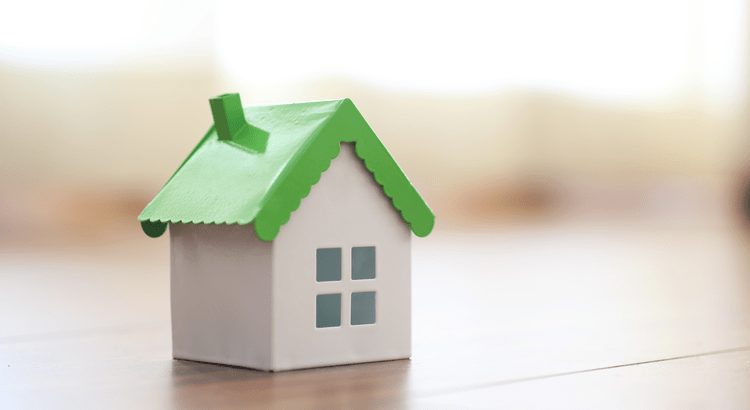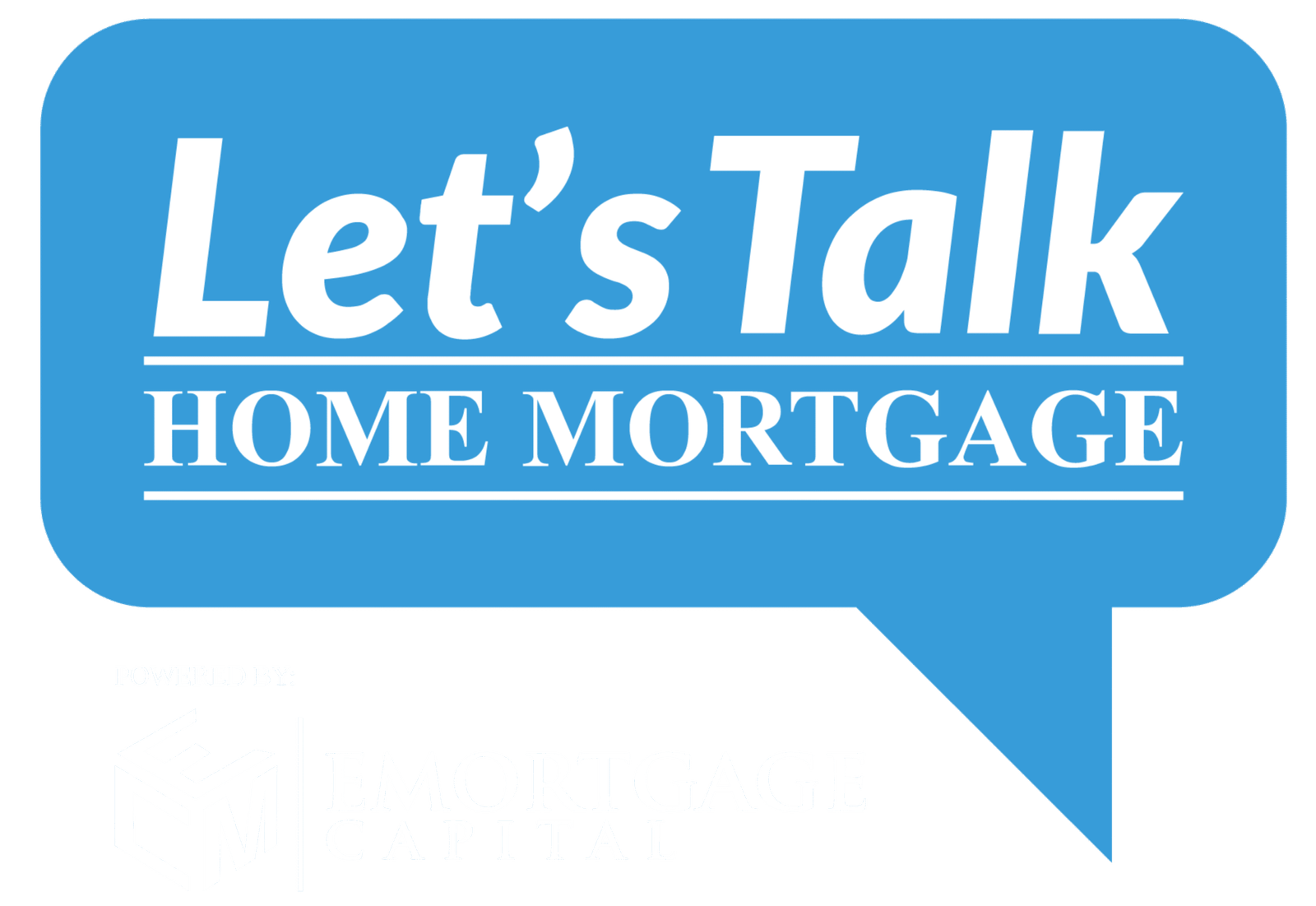How Homeowners Gained $28K in Equity Over the Past Year

If you’re a homeowner, there’s a good chance your net worth has seen a substantial increase over the past year thanks to rising home prices. Here’s a closer look at how homeowners are building equity faster than many might expect. Understanding Home Equity Equity is essentially the difference between the current market value of your home and the amount you owe on your mortgage. As home prices increase, so does your home equity. Over the past year, the demand for homes has consistently outstripped supply, pushing home prices upward. This surge has directly translated into increased home equity for countless homeowners. The Current Landscape of Home Equity Gains According to the latest Homeowner Equity Insights from CoreLogic, the average homeowner has seen their equity increase by $28,000 in just the last year. This is a national average, but regional variations exist. For a detailed look at how much equity has grown in each state, refer to the map included below, which uses data from CoreLogic to illustrate the equity gains across the country. Equity Growth Since Before the Pandemic For those who purchased their homes before the pandemic, the equity increase is even more pronounced. Data from Realtor.com indicates that home prices have surged by 37.5% from May 2019 to May 2024. Ralph McLaughlin, Senior Economist at Realtor.com, highlights the substantial equity boosts homeowners have witnessed: “Homeowners have seen extraordinary gains in home equity over the past five years.” Selma Hepp, Chief Economist at CoreLogic, further elaborates on the equity scenario: “With home prices continuing to reach new highs, owners are also seeing their equity approach the historic peaks of 2023, close to a total of $305,000 per owner.” Leveraging Your Home Equity This significant buildup of equity offers several practical benefits. Homeowners can utilize their increased equity to start a business, fund education, or even facilitate the purchase of their next home. Upon selling, the equity you’ve accumulated can substantially cover—or possibly exceed—the down payment for your next property. Bottom Line For those considering a move, the equity you’ve gained over recent years can be a powerful asset in facilitating your transition. If you’re curious about your home’s current equity and how you can leverage it for your next purchase, reaching out to a local real estate agent is a great starting point.
Should You Move Now or Wait? Expert Insights on Home Prices and Mortgage Rates

According to the most recent release, experts are projecting home prices will continue to rise at least through 2028:
Control What You Can: Navigating Mortgage Rates with Confidence

This blog post is SEO optimized to engage potential homebuyers by focusing on actionable insights into how they can manage their mortgage rates through personal financial decisions. Keywords such as “Mortgage Rates,” “Credit Score,” “Loan Type,” and “Loan Term” are strategically used to enhance search engine visibility and attract readers seeking guidance in a complex market.
Exploring Home Equity Loans: Unlock the Value of Your Home

Let’s break it down. Home equity is essentially the current value of your property minus any mortgage balances you owe. Given the rising home prices over recent years, you might be sitting on more equity than you realize—in fact, the average homeowner has about $297,000 in home equity! Now, you might be wondering, “How can I use this equity without selling my home?” Great question! There are several options like a cash-out refinance, a home equity line of credit (HELOC), or a home equity loan (HELOAN). Each option serves different financial needs and goals, but today, let’s focus on home equity loans. What’s a Home Equity Loan? Think of a home equity loan as a type of second mortgage. It allows you to convert part of your equity into cash without altering your existing mortgage. It’s pretty straightforward—you receive a lump sum to use as you see fit and pay it back at a fixed interest rate over a set period, typically 5-20 years. Remember, this comes in addition to your regular mortgage payments, so planning is key to manage the extra monthly expense comfortably. How Do You Get a Home Equity Loan? First up, you need to figure out how much cash you need. Home equity loans are great for large, one-time expenses like consolidating debts or making home improvements. You’ll need to have a clear idea of your project costs because the loan amount is fixed. Most lenders will ask that you have at least 20% equity in your home to qualify. However, some may offer flexibility, allowing you to borrow up to 90% of your home’s value, especially if your down payment was less than 20%. HELOC vs. Home Equity Loan While both let you tap into your home equity, they differ in how you access the funds. A HELOC is more like a credit card, giving you a credit line to draw from as needed, whereas a home equity loan gives you all the funds upfront. Understanding these differences can help you make the best choice for your financial situation. If you’re curious about tapping into your home equity or have any questions, don’t hesitate to reach out. I’m here to help you navigate these options and find the best path forward. Learn More Here
Let’s Talk: The Cost of Caring for an Aging Parent

Are you feeling overwhelmed by the financial strains of caring for aging parents? You’re not alone. Many of us in our forties and fifties are grappling with the challenges of the “sandwich generation.” From financial strains to emotional hurdles, the journey of caring for elderly loved ones can be daunting. As a Reverse Mortgage Professional and a caregiver, myself, I understand the complexities firsthand. Allow me to share some insights that may resonate with your own experiences. Understanding the Financial Burden Raising children comes with its financial demands, but the costs of caring for aging parents can often exceed those. Medicare, while a vital support for medical expenses, falls short when it comes to long-term care. The reality is stark: the average cost of nurturing a child to adulthood pales in comparison to the expenses associated with elder care. According to the Genworth 2021 Cost of Care Survey, a private room in a nursing home commands an average monthly fee of $9,034, with a semi-private room not far behind at $7,908. These figures translate into annual costs ranging from $94,896 to $108,408. The financial implications extend beyond institutional care, encompassing expenses like home modifications and caregiver support. Navigating the Emotional Terrain The toll of caring for aging parents extends beyond the financial realm. It’s an emotional journey fraught with uncertainties and complexities. Marguerita M. Cheng, a fellow Certified Financial Planner (CFP) who balances caring for her father with her professional commitments, “…highlights the importance of accessing resources like employee assistance programs (EAPs). These programs offer invaluable support through caseworkers who can provide vetted resources tailored to your family’s unique needs. Patti B. Black, another CFP who has walked the path of caring for her parents, emphasizes: “…the need for open communication within families. Honest discussions about caregiving responsibilities and potential scenarios can pave the way for informed decisions.” Whether it’s exploring in-home care options or considering a reverse mortgage, transparency and collaboration are key. Utilizing Reverse Mortgages for Elder Care For some families, a reverse mortgage can be a viable solution for funding elder care expenses. This financial instrument allows homeowners aged 62 or older to convert part of their home equity into cash, which can then be used to cover ongoing care costs or make necessary home modifications to accommodate aging parents. While a reverse mortgage may reduce the potential inheritance for heirs, it provides a way to access funds without tapping into personal savings or retirement accounts. (Click here to Learn More) Preserving Your Financial Future As you navigate the intricacies of caring for aging parents, it’s essential to safeguard your own financial well-being. Discussing long-term plans as a family can unearth creative solutions, such as multigenerational living arrangements or exploring financial instruments like reverse mortgages. These strategies can alleviate the strain on your finances while ensuring quality care for your loved ones. Seeking Support Remember, you don’t have to navigate this journey alone. There are resources available to guide you through the maze of caregiving responsibilities. Reach out to local agencies and nonprofit organizations specializing in elder care to explore available support services in your area. In closing, I want to assure you that while the road ahead may seem daunting, you have the strength and resilience to navigate it. Together, we can find solutions that honor our commitments to our families while safeguarding our financial futures.
Unlocking the Power of Home Equity: A Path to Achieving Your Dreams

Discover the Hidden Wealth in Your Home Have you been living in your home for a few years? If yes, you’re sitting on a gold mine called home equity. Unsure what that means? Let’s break it down with a simple definition from Freddie Mac: “. . . your home’s equity is the difference between how much your home is worth and how much you owe on your mortgage.” Think of it as a savings account that grows with every mortgage payment and as your home value increases. Last year, there was a slight dip in home prices, but guess what? They’re on the rise again in many regions. This increase is fantastic news for homeowners like you! Selma Hepp, CoreLogic’s Chief Economist, highlights this in the latest Equity Insights Report: “With price gains continuing to help homeowners build wealth, equity has reached a new high and regained losses that resulted from declines last year. And while the average U.S. homeowner gained over $20,000 in additional equity compared with the third quarter of 2022, some markets are seeing larger increases as price growth catches up.” To put this into perspective, the average homeowner with a mortgage is sitting on over $300,000 in equity. That’s a significant amount of money that can open new doors for you. Here’s how: Time for a Change? Buy a New Home Are you feeling cramped in your current home, or is it too big now? Use your equity as a down payment to find a home that’s just the right size for your evolving needs. Click here to learn more Invest in Your Current Home Not ready to move? Your home equity can fund improvements in your current house. Remember, not all upgrades are created equal. Consult a real estate agent to figure out which renovations will boost your home’s value the most. Click here to learn more Fuel Your Dreams Ever dreamt of starting a business, retiring in style, or furthering your education? Your home equity can be the key to these ambitions. However, use this resource wisely – it’s not for splurging, but for making impactful life changes. Click here to learn more Maybe consider a Home Equity Conversion Mortgage if you are retired or about to retire: Understanding your equity can be a lifeline in tough financial times, especially for seniors and a reverse may help. With rising inflation, medical costs or managing debt. Or maybe you want to move closer to your grandkids or travel more. The Golden years should be the years you should enjoy the most. Click here to learn more. Next Steps Curious about your home’s equity? Contact me here and I can provide a professional equity assessment, showing you how much you’ve accumulated and how to use it to achieve your goals.
Why Experts Predict a Modest Increase in Home Prices in 2024

In today’s real estate market, the fear of falling home prices is a concern shared by many. A recent survey conducted by Fannie Mae revealed that a staggering 24% of people believe that home prices will decline in the next 12 months. If you find yourself among those who share this concern, let’s take a closer look at what experts predict for home prices in 2024 and why you might not need to worry. Expert Consensus: To alleviate your concerns, let’s turn to the insights of experts who closely monitor the housing market. We’ve compiled data from eight different sources to provide you with a comprehensive view of the situation. According to the data (as shown in the graph below), the consensus among experts is clear. On average, they anticipate that home prices will increase by over 2% by the end of this year. In other words, they expect prices to rise, not fall. Why Prices Are Expected to Rise: The optimistic outlook for home prices in 2024 is rooted in several key factors. It’s important to note that prices are unlikely to depreciate this year due to two main drivers: tight inventory and favorable mortgage rates. Tight Inventory: Housing inventory remains limited, creating a situation where the demand for homes significantly outweighs the available supply. This scarcity naturally pushes prices upward. Lower Mortgage Rates: The current trend of decreasing mortgage rates has spurred strong buyer demand. As Selma Hepp, Chief Economist at CoreLogic, explains, “With mortgage rates dropping, demand for homes in early 2024 is likely to be strong and will again put pressure on prices, similar to trends observed in early 2023 . . . Most markets will continue to reach new home price highs over the course of 2024.” What Does This Mean for You? So, what does all of this mean for you, especially if you’re considering buying a home? The experts’ consensus that home prices will rise in 2024 brings some positive implications: Home Value Appreciation: As a homeowner, you want the value of your property to increase over time. This appreciation builds equity and makes homeownership a sound long-term investment. Cost of Waiting: If you’re ready to become a homeowner, waiting could come at a cost. With prices expected to rise, delaying your purchase may mean paying more for the same property later. Bottom Line: In conclusion, if the fear of falling home prices has been on your mind, it’s time to put those worries to rest. The consensus among experts is that home prices are likely to rise in 2024. However, if you have specific questions or concerns about the real estate market in your area, it’s always a good idea to consult with a knowledgeable real estate agent. They can provide you with localized insights and guidance to make informed decisions in today’s dynamic housing market. Remember, the key to successful homeownership is staying informed and making decisions based on expert analysis and market trends. Don’t let the fear of falling prices deter you from taking steps toward your homeownership goals.
2 Reasons Why Today’s Mortgage Rate Trend Is Good for Sellers

Hey everyone, Patrick here with some exciting insights for all you homeowners out there! I know a lot of you have been on the fence about selling your homes, worried that those pesky high mortgage rates would dampen your plans. But guess what? There’s a light at the end of the tunnel! Remember last October when mortgage rates hit a whopping 7.79%? Well, they’ve been on a downward slope since then. In fact, they’ve been consistently below 7% for over a month now. While we’re not seeing the super low 3% rates of the past, experts like Dean Baker from the Center for Economic Research suggest: “It also appears that mortgage rates are now falling again. They will almost certainly not fall to pandemic lows, although we may soon see rates under 6.0 percent, which would be low by pre-Great Recession standards.” So, why is this downward trend such fantastic news? Let me break it down for you: Say Goodbye to Feeling Locked-In: With rates dropping, the gap between your current mortgage rate and what you might get now is shrinking. This change makes the idea of moving to a new place more appealing and financially manageable than it was just a few months back. Lance Lambert from ResiClub explains: “We might be at peak “lock-in effect.” Some move-up or lifestyle sellers might be coming to terms with the fact 3% and 4% mortgage rates aren’t returning anytime soon.” Hello, Buyers: High mortgage rates were a major hurdle for buyers, but with rates easing up, we’re likely to see more folks jumping back into the market. This means more demand for homes like yours, making it a great time to consider selling. Bottom Line: If you’ve been holding back on selling your home because of high mortgage rates or worries about buyer availability, this recent shift might be your cue to make a move. And hey, when you’re ready, reach out to a trusted real estate agent to get the ball rolling.
Homeownership Equity: Honoring Dr. King’s Vision for All

Homeownership Equity: Honoring Dr. King’s Vision for All Martin Luther King Jr. Day is a significant opportunity to reflect on the ongoing struggle for equality in various aspects of life, including homeownership for people of color. Dr. King’s legacy is deeply intertwined with the pursuit of civil rights and social justice, which includes economic equality and the right to own a home. 1. Equality and Opportunity: Dr. King’s dream of judging individuals by their character, not skin color, resonates deeply with the historical struggle for housing equality. For decades, people of color faced discriminatory practices, including redlining, which denied them equal access to housing opportunities. However, through the Civil Rights Act of 1968, also known as the Fair Housing Act, significant steps were taken to prohibit housing discrimination based on race, color, religion, or national origin. This was a pivotal moment in the journey towards equal homeownership opportunities. 2. Breaking Down Barriers: Dr. King’s dream to break down barriers of segregation is mirrored in the fight against housing discrimination. The Fair Housing Act, signed into law shortly after his assassination, aimed to dismantle systemic barriers that had prevented people of color from obtaining fair mortgage rates and housing loans. This landmark legislation marked a turning point in the pursuit of equitable access to homeownership. 3. Economic Empowerment: Historically, people of color faced economic disparities that hindered their ability to become homeowners. However, progress has been made through initiatives like the Community Reinvestment Act (CRA) and efforts to increase financial literacy. These steps have helped empower individuals and communities to navigate the complexities of homeownership and build wealth. 4. Community Building: Dr. King’s vision of inclusive communities aligns with efforts to create diverse and thriving neighborhoods. Over the years, organizations and community leaders have worked tirelessly to promote fair housing practices and encourage diverse homeownership. This has contributed to the creation of more inclusive and vibrant communities. 5. A Vision for the Future: Dr. King’s dream was a call to action for a better future, and progress in housing equality reflects a similar aspiration. While challenges persist, strides have been made towards achieving fair housing and equal homeownership opportunities. The dream of a society where everyone can access homeownership regardless of their racial background remains a driving force for change. You might consider watching his famous “I Have a Dream” speech” or reading his “Letter from Birmingham Jail.” In summary, Dr. Martin Luther King Jr.’s dream of equality and justice is intimately connected to the historical struggle for fair housing and homeownership for people of color. Through legislation, activism, and community efforts, significant progress has been made to break down discriminatory barriers and move closer to realizing the dream of a more equitable society. The journey continues, but the dream remains alive, inspiring us to work towards a future where everyone has a fair shot at homeownership. My interest in serving new homeowners and seniors can be a part of this larger effort. By ensuring that our services are accessible and fair, and by providing education and resources, contributing to making the dream of homeownership a reality for more people, continuing the work that Dr. King and many others have fought for.
Get Ready To Buy a Home by Improving Your Credit Score

As we usher in the new year, the aspiration of purchasing your own home may be taking root in your thoughts. Embarking on this journey is a momentous decision, and laying a strong foundation early is key. A pivotal element in this preparation is enhancing your credit score. In this blog I will share with you how you can get a free credit report every year. This is essential to know what’s on there and that you haven’t been scammed by identity theft. This report shows all 3 credit bureaus, Experian, Equifax and Transunion. Understanding how lenders perceive your credit is crucial. They use it to evaluate your reliability in meeting financial obligations, including timely payments and debt management. This score not only influences their decision but also plays a significant role in determining the mortgage rate you’ll receive. A CNBC article encapsulates it perfectly: “When it comes to mortgages, a higher credit score can save you thousands of dollars in the long run. This is because your credit score directly impacts your mortgage rate, which determines the amount of interest you’ll pay over the life of the loan.” In the current economic landscape, where mortgage rates are integral to housing affordability, your credit score gains even more significance. Data from the Federal Reserve Bank of New York indicates that the median credit score for mortgage borrowers in the U.S. is 770. However, perfection is not a prerequisite. Business Insider notes how your FICO score can affect things: “. . . you don’t need a perfect credit score to buy a house. . . . Aiming to get your credit score in the ‘Good’ range (670 to 739) would be a great start towards qualifying for a mortgage. But if you’re wanting to qualify for the lowest rates, try to get your score within the ‘Very Good’ range (740 to 799).” Partnering with a reputable lender is the optimal approach to understand how your credit score can influence your home loan and mortgage rate. As stated by FICO, “While many lenders use credit scores like FICO Scores to help them make lending decisions, each lender has its own strategy, including the level of risk it finds acceptable. There is no single “cutoff score” used by all lenders and there are many additional factors that lenders may use to determine your actual interest rates.” To bolster your credit score, consider the following strategies highlighted by Experian: Payment History: Avoid late payments, as they can detrimentally affect your score. Prioritize punctuality in bill settlements and address any outstanding late payments swiftly. Debt-to-Credit Ratio: Aim to minimize your credit utilization. Lower usage of your available credit is favorable. Credit Inquiries: Limit applying for new credit if you’re planning a major purchase like a house. New credit applications can trigger hard inquiries, which might temporarily reduce your score. A lender will guide you through the entire process, from evaluating your current credit score range to providing detailed information on various loan types. Conclusion As you gear up for home buying in the year ahead, focusing on improving your credit score is a strategic move. You can get your free credit report by clicking this link: www.annualcreditreport.com that details where It could be instrumental in securing a more advantageous mortgage rate. To delve deeper into this topic and get personalized guidance, connect with a trusted lending professional.
